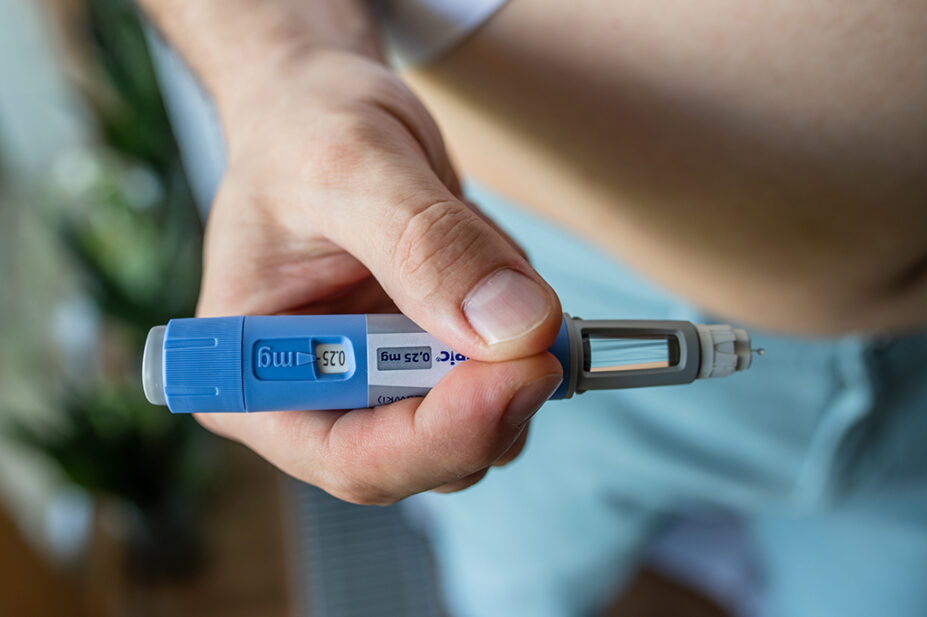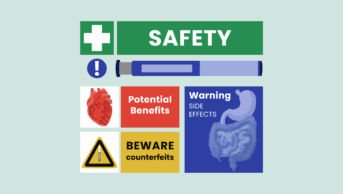
Shutterstock.com
The Medicines and Healthcare products Regulatory Agency (MHRA) has seized 369 potentially fake Ozempic (semaglutide) pens since January 2023 and has also received reports of fake Saxenda (liraglutide) pens in the UK.
In a statement published on 26 October 2023, the MHRA said it had received reports of a “very small number” of people who were hospitalised after using potentially fake weight loss pens.
The statement says that the reported side effects of those hospitalised — which include hypoglycaemic shock and coma — suggest that the fake pens may have contained insulin rather than semaglutide.
Semaglutide and liraglutide are glucagon-like peptide-1 receptor agonists, which have gained popularity for their use in weight loss. In March 2023, semaglutide — which was initially authorised in the UK for use in type 2 diabetes mellitus — was approved as a treatment for weight management by the National Institute for Health and Care Excellence.
The UK regulator has warned the public not to buy pre-filled pens claiming to contain Ozempic or Saxenda from “outside of the legal supply chain” and has advised them to consult a healthcare professional qualified to prescribe these medicines via a prescription.
Commenting on the announcement, Alison Cave, chief safety officer at the MHRA, said: “Buying products, such as Ozempic or Saxenda, without a prescription, from illegally trading suppliers, significantly increases the risk of receiving something which is either fake or not licensed for use in the UK.
“Products purchased in this way do not meet our strict quality and safety standards, and taking such medicines may put your health at significant risk,” she said.
On 18 October 2023, the MHRA announced that falsified Ozempic pens were identified at two wholesalers in the UK. They highlighted that the falsified pens had German labels and originated from wholesalers in Austria and Germany.
The regulator added that there was no evidence of any falsified pens dispensed from legal pharmacies and no reports of patient harm in relation to the falsified medicine at the time.
Commenting on the distribution of fake pens, Martin Sawer, executive director at the Healthcare Distribution Association (HDA), which represents medicines wholesalers, said: “HDA member companies uphold the UK government-endorsed ‘Gold Standard of Good Distribution Practice (GDP)’, which means HDA member companies have to apply rigorous, MHRA-approved checks and validation of whoever they are purchasing medicines from.
“HDA member companies will usually buy this critical prescription product directly from the manufacturer.”
Paul Gately, chief executive of the charity Obesity UK, said: “The dangers to health are clear. Our advice, like that of the MHRA, is that only medication prescribed by a qualified medical/healthcare professional should be taken.”


